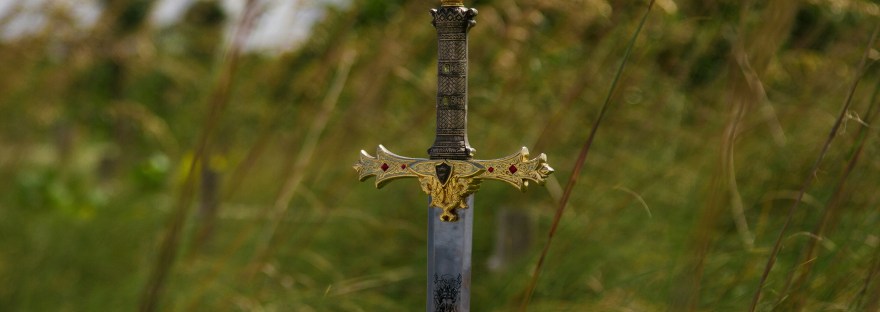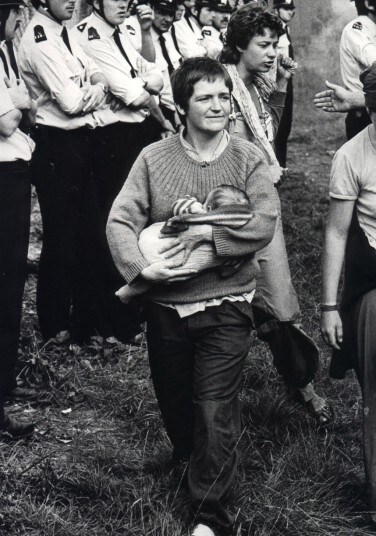The familiar adage ‘the pen is mightier than the sword’ is often quoted to suggest that the written word is more effective than violence in achieving political or social progress. But what of the power of vocabulary? The choice of which individual words to use can change the implied meaning, emotional impact and influence people’s opinions or beliefs. In our day-to-day conversations, we generally don’t plan the exact words we’ll employ to communicate with each other, we just draw from our inner dictionary with little conscious thought. However, writers, broadcasters, politicians, journalists and public speakers take time to choose their words, often in several redrafts to elicit a particular emotional response from their audience, to add power to the ideas they want to get across, to inspire or persuade.
People love a story, and there is no story without drama. To create drama, the word choices are vital. As writers will know, the use of active or more powerful verbs can make a big difference to reader engagement. For example, consider the sentence ‘The door opened and John entered the room’. This is a fairly bland statement that tells us nothing about John or how he’s feeling. If we replace ‘entered’ with ‘crept into’, ‘burst into’, or ‘staggered into’, etc., we immediately get a sense of action and heightened interest; even more so if we make the character control of the door: ‘John eased the door open and tiptoed into the room’, or ‘John kicked the door open and stormed into the room’.
Advertisers also choose their words carefully – they have to make you buy their stuff with short soundbites or taglines aimed to convince you they’ll improve your life or satisfy your deepest desires. BMW described their cars as ‘the ultimate driving machine’. Ultimate? Who can resist? You might buy L’Oréal because ‘you’re worth it’. Of course you are! Or Cadbury’s Flake because it ‘tastes like chocolate never tasted before.’ Who can resist?
I recently saw a tagline on the front of a magazine that included the phrase ‘…to combat climate shock’. To me, the word ‘combat’, meaning to fight, infers the possibility of victory or defeat. Certainly, we can make every attempt to ensure our activities do not exacerbate the situation and there are steps we can take to mitigate or alleviate some of the effects it has on our lives, homes and the wider environment. But can we fight the weather? Can we defeat climate change? But to use the words ‘cope with’ will inspire fewer people to act than a call to battle.
These days politicians and the media rarely refer to people fleeing war, famine or persecution as ‘refugees’ – they are all now ‘migrants’. Words such as ‘swarm’ (David Cameron as PM), ‘marauding’ (Philip Hammond, Foreign Sec.) and ‘invasion’ (Suella Braverman, Home Secretary) are used to stir up xenophobia. Richard Drax, Conservative MP and owner of 13,000 acres of land (7,000 of which is walled off), and whose family fortune was amassed by slavery, claimed that the country was ‘full’. Regardless of his empty lands, there are 676,000 vacant properties in England, over 250,000 of which are long-term unoccupied homes. This would be enough to house the Calais Jungle at its height forty times over.
In the latter years of the Cold War, Ronald Regan (US President) referred to the ninety-six nuclear missiles at Greenham Common as ‘peacemakers’. The Daily Mail, infamous for its policy of inciting multiple prejudices, reported that the women at the peace camp ‘deliberately and calculatingly stink’, ignoring the fact that the local council banned the use of chemical toilets on the site and repeatedly removed or disabled the standpipes that were the only source of water.
The hunting fraternity’s use of the word ‘game’ turns their activities into play, a verb that implies harmless fun. Thus the annual slaughter of millions of cage-bred partridges and pheasants (many of which are not eaten) becomes a jolly lark, a light-hearted and entertaining diversion. Wild animals such as foxes, hares and crows lived in balance with the natural environment until human activities began doing just the opposite. When classed as ‘pests’ or ‘vermin’, they become legitimate targets for extermination.
Propaganda is a powerful tool, and the words used can easily sway the minds of the masses. It was used to great effect by Hitler and Goebbels. So, when listening to politicians, the media or anyone with vested interests in persuading you to accept or adopt their point of view, think about the words they’ve chosen and how they affect you. As Malcolm X said, ‘If you’re not careful, the newspapers will have you hating the people who are being oppressed, and loving the people who are doing the oppressing.’
On the other hand, if you are reading a story and the author is good enough to captivate your attention, you don’t have to analyse their vocabulary, just go along for the ride and enjoy the journey.




